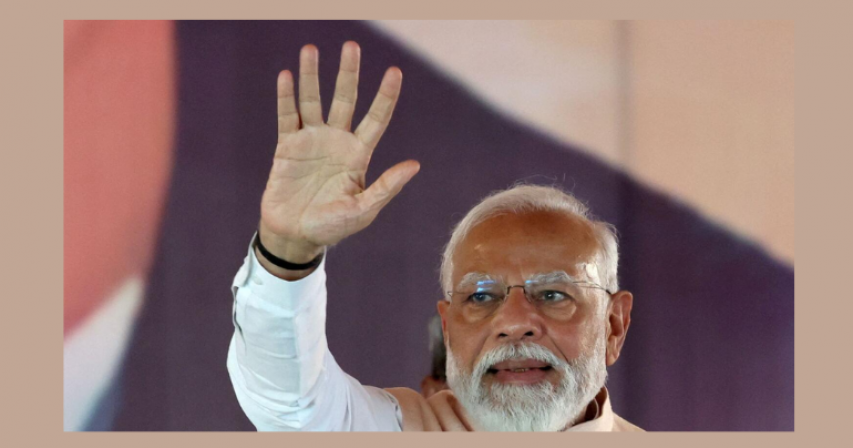India's Congress seeks action against Modi for comments about Muslims

The recent remarks made by Prime Minister Narendra Modi, referring to Muslims as "infiltrators" during a campaign speech, have sparked controversy and drawn sharp criticism from opposition parties, particularly the Indian National Congress. Modi's comments, perceived as derogatory and violative of election laws, have ignited a debate on religious tolerance and the use of divisive rhetoric in political discourse.
In his speech, Modi alluded to the Congress party's election manifesto, alleging that it promised to confiscate and redistribute the wealth of Indians. He further insinuated that adhering to previous remarks made by former Congress Prime Minister Manmohan Singh regarding resource allocation to minority Muslims would result in the distribution of wealth to "infiltrators" and those with "more children." Such statements, laden with communal undertones, have stirred a heated response from critics, accusing Modi of polarizing the electorate along religious lines.
The Indian National Congress swiftly lodged a petition with the Election Commission, urging action against Modi for violating election laws that prohibit candidates from making appeals based on religion or community affiliation. Congress leader Abhishek Manu Singhvi condemned Modi's remarks as "deeply objectionable" and called for accountability under the legal framework governing electoral conduct. The Election Commission, responsible for overseeing the fairness of elections, is yet to respond to the Congress party's petition.
Modi's comments have reignited concerns about the treatment of religious minorities in India, particularly Muslims, who constitute a significant segment of the population. The BJP's Hindu nationalist agenda has often been criticized for stoking communal tensions and fostering discrimination against minority groups. References to Muslims as "infiltrators" and insinuations about their birth rates have been construed as inflammatory and discriminatory, raising apprehensions about the government's commitment to secular principles and religious pluralism.
Critics argue that Modi's government has pursued policies that disproportionately affect Muslims, alleging discrimination and marginalization. Despite repeated denials by the government, accusations of bias and prejudice persist, with civil society organizations, opposition parties, and international observers voicing concerns about the erosion of religious freedom and communal harmony in India.
Against the backdrop of a fiercely contested election, characterized by intense political rivalry and ideological polarization, Modi's remarks underscore the broader debate over the role of identity politics and communal rhetoric in shaping electoral discourse. As India navigates its democratic process, safeguarding the principles of inclusivity, secularism, and tolerance remains paramount in fostering a pluralistic society and upholding the constitutional values of equality and dignity for all citizens.
In the coming days, the Election Commission's response to the Congress party's petition against Modi is eagerly anticipated, as it holds implications for electoral conduct and the enforcement of laws governing political discourse. With the general election underway, the spotlight remains firmly on political leaders' adherence to ethical standards and their commitment to fostering unity and harmony among India's diverse populace.
By: Sahiba Suri





Comments